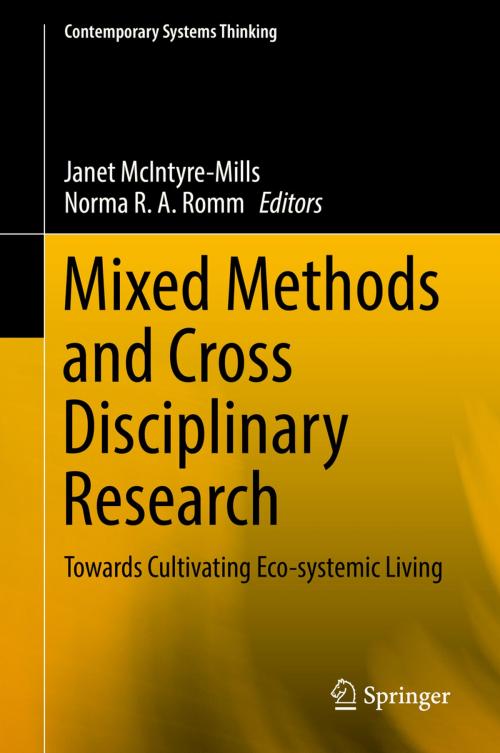Mixed Methods and Cross Disciplinary Research
Towards Cultivating Eco-systemic Living
Business & Finance, Business Reference, Business Ethics, Nonfiction, Social & Cultural Studies, Political Science, Government, Social Policy| Author: | ISBN: | 9783030049935 | |
| Publisher: | Springer International Publishing | Publication: | July 12, 2019 |
| Imprint: | Springer | Language: | English |
| Author: | |
| ISBN: | 9783030049935 |
| Publisher: | Springer International Publishing |
| Publication: | July 12, 2019 |
| Imprint: | Springer |
| Language: | English |
This book uses mixed methods to extend the concept of “wellbeing stocks” to refer to dynamic ways of working with others. It addresses metaphors and praxis for weaving together strands of experience. The aim of the wellbeing stocks concept is to enable people to re-evaluate economics and to become more aware of the way in which we neglect social and environmental aspects of life. The pursuit of profit at the expense of people and the environment is a central problem for democracy and governance. The vulnerability of cities is a symptom of the lack of balance between individual and collective needs. This book explores the potential for cities, specifically in the regions of Indonesia, Africa, and Australia, to become more productive as sites for food and water security through more creative use of technology. It highlights the need for partners that see food and security feasible at the household level if supports are provided at the community, national and international level. The book examines how these regions are affected by demographics, climate change and people movements, but also explores ways to establish an effective cultural ecosystem management.
This book uses mixed methods to extend the concept of “wellbeing stocks” to refer to dynamic ways of working with others. It addresses metaphors and praxis for weaving together strands of experience. The aim of the wellbeing stocks concept is to enable people to re-evaluate economics and to become more aware of the way in which we neglect social and environmental aspects of life. The pursuit of profit at the expense of people and the environment is a central problem for democracy and governance. The vulnerability of cities is a symptom of the lack of balance between individual and collective needs. This book explores the potential for cities, specifically in the regions of Indonesia, Africa, and Australia, to become more productive as sites for food and water security through more creative use of technology. It highlights the need for partners that see food and security feasible at the household level if supports are provided at the community, national and international level. The book examines how these regions are affected by demographics, climate change and people movements, but also explores ways to establish an effective cultural ecosystem management.















